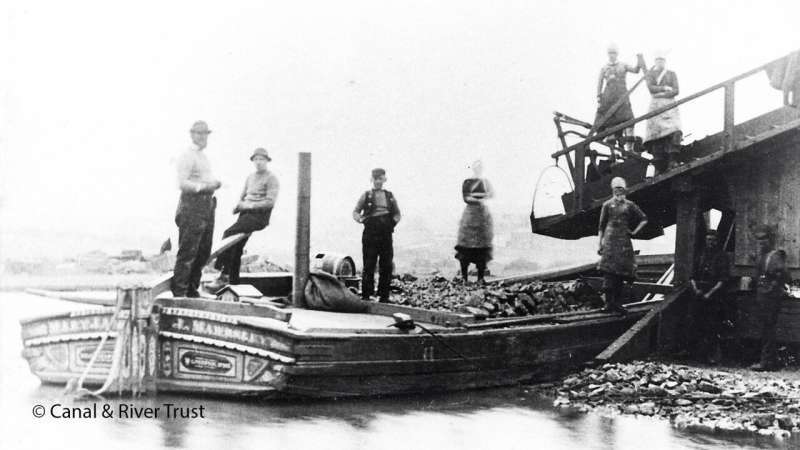New book investigates the literature of Britain’s waterways

Britain’s changing relationship with its canal network and the implications of how canals contributed to our reliance on fossil fuels are at the heart of a new book from Professor Jodie Matthews.
“The British Industrial Canal—Reading the Waterways from the Eighteenth Century to the Anthropocene” examines writings about the canals to look at how our use of them has changed, taking in trade, leisure, wartime and as ‘linear parks’—spaces that give people somewhere to have time to themselves. The book considers the place of canals in our broader culture, a neglected topic.
It also touches on the role that canals played in Britain’s relationship with its Empire, and how their connections to the slave trade still reverberate today.
The book builds on earlier work by Professor Matthews, where she explored the representation of canal boat people and the attitudes towards them and other traveling communities in two articles for the journal Nineteenth-Century Contexts.
“When the Duke of Bridgewater was building his canal, the first of the industrial era in mainland Britain, he was not doing it because he wanted to start a national network of waterways,” says Professor Matthews, Professor of English Literature and Head of Department for Communication and Humanities. “He simply wanted to get his coal to Manchester.
“When it opened, the price of coal in Manchester halved almost overnight. But in addition to the implications of the effects of the Bridgewater Canal, it was an incredible feat of engineering as all canals were—it’s engineered water. The canals were not just a transport system, but an energy system because they primarily transported coal and that’s what made industrial Britain ‘go.’ Here we are today, living with the consequences of our use of fossil fuels and of pollution, with a future that is very uncertain.”
“I think our relationship with water changed in the era of the industrial canal. We might think of water as just H2O, the same wherever we find it, but I’m suggesting that the water of the industrial canal is also historical and social.
Professor Matthews’ book looks at literature about the canals from each century up to the present day. The writings she looks at range from Boys Own-style travelogs, to journals from middle-class women who worked the waterways when thousands of men were away at war, to modern “canal noir” fiction.
“The middle-class women who worked on the canals wore badges that said IW for Inland Waterways, and this led to the ironic nickname of ‘Idle Women,'” adds Professor Matthews. “They were sometimes called the land girls of the canals as their role was seen as similar.
“More recently, there has been a sub-genre of new nature writing about the canals, where people write about the canals as a space in the 21st century and what they hold for nature. They are writing about the way in which canals can heal our troubled souls.”
Key to Professor Matthews’ book is how the perception of these feats of engineering, cutting edge technology in their day, have changed over the course of two and a half centuries.
“What holds it together is our relationship with the waterways over the centuries and the way in which this canal space has meant so many different things to different people,” she adds. “They have never meant just one thing. If you ask anybody about their nearest canal and what they feel about it, every person who answers will give you a different response.”
Professor Matthews has also been Honorary Research Fellow for the Canal and River Trust, and has previously investigated the links between the profits of slavery being invested in the building of the canals.
“There’s no sense in which canal history is marginal history. The waterways run through every aspect of British history since the mid-18th century. That includes the histories of science and engineering, but it includes our history of Empire, our relationship with slavery, attitudes to class, labor and gender.
“The canals are part of our culture and part of our society, and therefore every other aspect of our history that we’re re-examining in the twenty-first century. I’m excited by the possibilities that the study of literature holds for understanding how we got to where we are now, including in the fields of science and engineering.”
Citation:
New book investigates the literature of Britain’s waterways (2023, July 5)
retrieved 5 July 2023
from https://phys.org/news/2023-07-literature-britain-waterways.html
This document is subject to copyright. Apart from any fair dealing for the purpose of private study or research, no
part may be reproduced without the written permission. The content is provided for information purposes only.
For all the latest Science News Click Here
For the latest news and updates, follow us on Google News.

